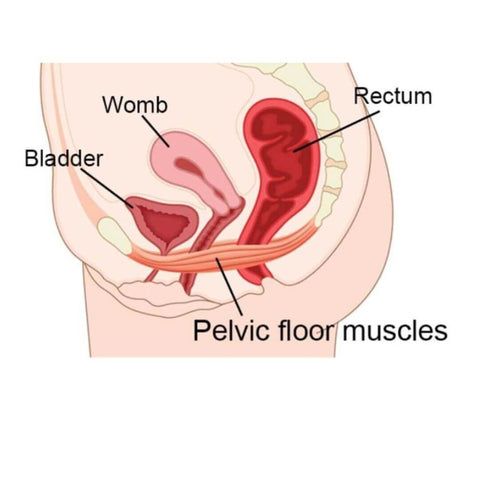Understanding the Connection: Why Does Pee Come Out When I Sneeze or Cough?
For many individuals, the embarrassing and often puzzling phenomenon of urinary leakage during a sneeze or cough can be a source of frustration and discomfort.
This occurrence, known as stress incontinence, can leave people questioning why their body reacts in such a manner.
In this blog, we delve into the science behind why pee comes out when you sneeze or cough, exploring the underlying factors and potential remedies.
The extent of severity may vary, ranging from minor instances of diminished control (resulting in a few drops of urine) to more profound cases characterized by continuous leakage from the bladder.
What Causes Stress Urinary Incontinence?

Stress incontinence is a common type of urinary incontinence that occurs when physical stress or pressure is placed on the bladder. This pressure can result from various activities, such as sneezing, coughing, laughing, lifting heavy objects, or even exercising.
Unlike other forms of incontinence, such as urge incontinence, which is characterized by a sudden and intense need to urinate, stress incontinence is primarily triggered by external factors that put strain on the pelvic floor muscles and urinary sphincter.
Research suggests that approximately 300 million individuals globally experience some degree of incontinence.
A significant portion of these individuals may refrain from seeking assistance, possibly due to feelings of embarrassment, diminished confidence, or the normalization of leaks perpetuated by certain pad companies.
While leaks are widespread, it's crucial to recognize that they are not inherently normal, despite their prevalence.
The Role of Pelvic Floor Muscles and Sphincter:
To comprehend why urine leakage happens during sneezing or coughing, it's essential to understand the role of the pelvic floor muscles and urinary sphincter.
The pelvic floor muscles support the bladder and other pelvic organs, helping to maintain urinary continence. Meanwhile, the urinary sphincter is a circular muscle that surrounds the urethra and helps control the flow of urine out of the bladder.

When pressure is exerted on the abdomen during activities like sneezing or coughing, it can strain the pelvic floor muscles and weaken the urinary sphincter's ability to hold urine effectively. As a result, a small amount of urine may escape involuntarily, leading to sudden uncontrollable leakage.
Factors Contributing to Stress Incontinence
Several factors can contribute to the development of stress incontinence, including:
-
Pregnancy and childbirth: The strain placed on the pelvic floor muscles during pregnancy and childbirth can weaken them, increasing the likelihood of stress incontinence.
-
Aging: As individuals age, the pelvic floor muscles and urinary sphincter may weaken naturally, making them more susceptible to stress incontinence.
-
Obesity: Excess weight can put additional pressure on the bladder and pelvic floor muscles, exacerbating stress incontinence symptoms.
-
Chronic coughing: Conditions such as asthma, chronic bronchitis, or allergies that cause frequent coughing can contribute to stress incontinence due to the repetitive strain placed on the pelvic floor muscles.
-
Menopause: Changes in hormone levels during menopause can lead to a decrease in muscle tone and elasticity, potentially contributing to stress incontinence.
How To Stop Peeing When Coughing and Sneezing
While stress incontinence can be inconvenient and embarrassing, there are several strategies to manage and alleviate its symptoms:
Pelvic Floor Exercises (Kegels):
Strengthening the pelvic floor muscles through exercises like Kegels can improve urinary control and reduce leakage. This is the first recommended treatment before any invasive options are considered.

Lifestyle Modifications:
Maintaining a healthy weight, avoiding constipation, and practicing good toilet habits can help minimize stress on the bladder and pelvic floor muscles.
Bladder Training:
Training the bladder to hold urine for longer periods can increase its capacity and reduce the frequency of leakage episodes.
Pelvic Floor Weights:
These are designed to strengthen and tighten your pelvic floor muscles from just 15 minutes a day. These are small, weighted pelvic floor exercise balls designed to be inserted into the vagina to help strengthen the pelvic floor muscles.
By holding the weights in place using the pelvic floor muscles, individuals can effectively target and tone these muscles, improving their ability to support the bladder and prevent urinary leakage.
Behavioral Therapies:
Techniques such as biofeedback and timed voiding can help individuals regain control over their bladder function.
Medical Interventions:
In some cases, medications or surgical procedures may be recommended to treat severe stress incontinence that doesn't respond to conservative measures.
While it's normal to feel embarrassed or frustrated by urinary leakage during sneezing or coughing, understanding the underlying mechanisms of stress incontinence can empower individuals to seek appropriate management strategies.
By incorporating pelvic floor exercises, lifestyle modifications, and other therapeutic approaches, many people can effectively manage stress incontinence and improve their quality of life.
If you're experiencing persistent or severe symptoms of stress incontinence, consulting with a healthcare professional can provide personalized guidance and treatment options tailored to your needs.
For more information on urinary incontinence and pelvic health, explore our Multi Award Winning Pelvic Floor Strengthener.
Designed to strengthen your pelvic floor muscles from just 15 minutes a day. Improve prolapse, stress and urge incontinence in 6 easy steps.
Just 15 minutes a day to a stronger pelvic floor and they last for LIFE!
EXPLORE MORE ARTICLES ON PELVIC HEALTH
Links to Related Blogs:
If you're seeking to enhance your pelvic floor strength within a month and master the proper techniques for Kegel exercises, we invite you to join our upcoming 30-Day Pelvic Floor Challenge.
This program aims to establish daily Kegel routines and get you into the daily habit of doing your Kegels every day with ease.
We start on Monday, April 8th, 2024. Don't miss this opportunity to prioritize your pelvic health and achieve lasting benefits.
➡️➡️➡️ Sign up now to be leak free for summer!
You can also join our fabulous womens only private Facebook Group
Never miss another blog again. Sign up now to our weekly Newsletter. You will get a 10% discount code to use too. Just click below ⬇️⬇️⬇️














